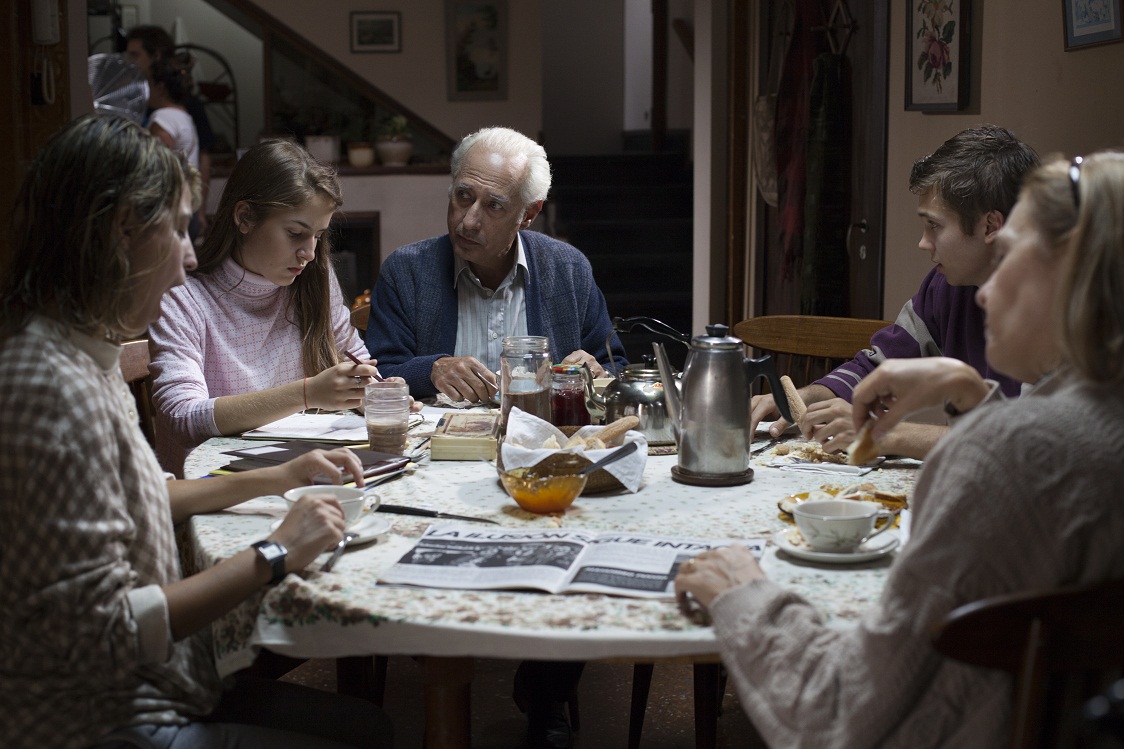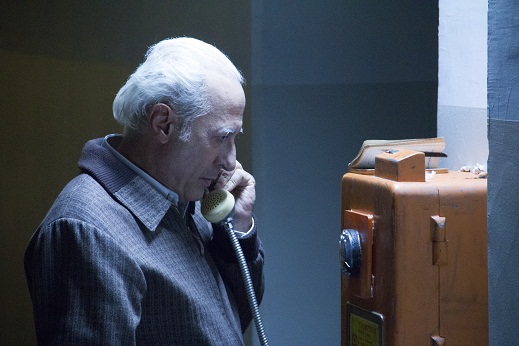Latin America has learnt from harsh experience just what the legacy of dictatorship involves, when the structure itself may have been dismantled but the psychology that it engendered remains. It’s a subject that has been tackled by many of the continent’s filmmakers, prime among them perhaps Pablo Larrain in Chile, for whom such explorations have themselves become part of the slow process of moving on from that past.
The Clan has Argentina's Pablo Trapero dramatising a real-life story from the 1980s that is as chilling as they come, while the manner in which he approaches it only underlines the horror. The arrest of an apparently respectable patriarch, Arquimedes Puccio (Guillermo Francella), and his family for a series of kidnappings – of their neighbours, even acquaintances, who were subsequently killed, regardless of ransoms paid – grabbed the nation’s headlines back then; judging by how the film broke local box office records on its release last year, its fascination hasn't gone away. But Trapero goes far beyond the sensational: The Clan brought him the Best Director award at the Venice film festival 2015, and in its dispassionate playing out of key scenes to musical accompaniment that casts what’s taking place before our eyes in an icily removed light it’s won comparisons with Scorsese.
Francella impresses for the way he refines his role down
Trapero makes Arquimedes' past clear, his connection to the old order now being pushed aside by democratic change, and in particular to a sinister senior officer, the Comodoro, whose send-off he attends in the film's opening scene. News clips add context on what’s happening, as bureaucratic desks are quickly cleared, papers destroyed and secrets hidden, though there’s a strong feeling in some circles that the changes won’t last, and that before long the generals will be back in power. Which would mean that the “disappearances”, the past kidnappings of opponents of the state of which we have learnt so much in the intervening years, would return too, even as we hear the new democratic refrain Nunca Más (Never Again) ring out.
Deprived of whatever nefarious position he may have occupied in that past system, Arquimedes continues its practices, his family now joining him as accomplices. Their complicity takes different forms: in the case of eldest son Alejandro (Peter Lanzani), a rugby star who’s something of a local hero, it’s active involvement as he becomes bait to lure in victims (his two brothers make their distinct choices during the course of the film). For the women in the family, it’s turning a deaf ear to the cries coming from the cell for victims that Arquimedes has constructed in a remote corner of their house: that allows for claims of ignorance that, however implausible, finally allowed them largely to escape justice. The routine of family life continues regardless (pictured below). That relationship between father and son lies at the cold heart of The Clan, in particular the fearsome degree of control that the ashen-faced, undemonstrative Arquimedes exerts over the extrovert Alex. For all the things the young man has going for him – his sporting success, the girl he’s engaged to – it’s a bond from which there seems no escape: Trapero underlines that when he chillingly intercuts scenes of Alex making out with his girlfriend with the brutality of an ongoing kidnap. It's like an unwritten law, to break which Alex will have to literally break himself, as we witness in Trapero’s closing sequence, which recounts the fate of each family member after arrest.
That relationship between father and son lies at the cold heart of The Clan, in particular the fearsome degree of control that the ashen-faced, undemonstrative Arquimedes exerts over the extrovert Alex. For all the things the young man has going for him – his sporting success, the girl he’s engaged to – it’s a bond from which there seems no escape: Trapero underlines that when he chillingly intercuts scenes of Alex making out with his girlfriend with the brutality of an ongoing kidnap. It's like an unwritten law, to break which Alex will have to literally break himself, as we witness in Trapero’s closing sequence, which recounts the fate of each family member after arrest.
 Francella impresses for the way he refines his role down – there's no direct anger, a subdued voice, and a presence that bites like frost rather than burns; with terrible detachment he dictates over public telephone release terms to the families, unable, it appears, even to consider any moral dimension to what he is doing (pictured above left). It's chilling how that absence of consideration doesn’t stop him from being a loving father, proud of his son’s successes, and a respected member of the community, afforded a conviction of his invulnerability by his past allegiances. He’s a psychopath formed by history, behind whose visage there lies only blankness, product of a system that took away from its recruits any sense of the consequences of their actions.
Francella impresses for the way he refines his role down – there's no direct anger, a subdued voice, and a presence that bites like frost rather than burns; with terrible detachment he dictates over public telephone release terms to the families, unable, it appears, even to consider any moral dimension to what he is doing (pictured above left). It's chilling how that absence of consideration doesn’t stop him from being a loving father, proud of his son’s successes, and a respected member of the community, afforded a conviction of his invulnerability by his past allegiances. He’s a psychopath formed by history, behind whose visage there lies only blankness, product of a system that took away from its recruits any sense of the consequences of their actions.
Trapero shades his film with comparable restraint – it's there in the colours of Julian Apezteguia’s cinematography, too – as well as ironic juxtaposition that makes its impact all the stronger. It hits home in a musical score which has light music, jazzy classics like “(Into Each Life) Some Rain Must Fall” or “Just a Gigolo” playing over scenes that are heavy in their violence. As viewers, our critical faculties are somehow distorted, an experience that matches Trapero's world in which the everyday coexists with the horrific. An unforgiving, but highly compelling watch.
Overleaf: watch the trailer for The Clan















Add comment